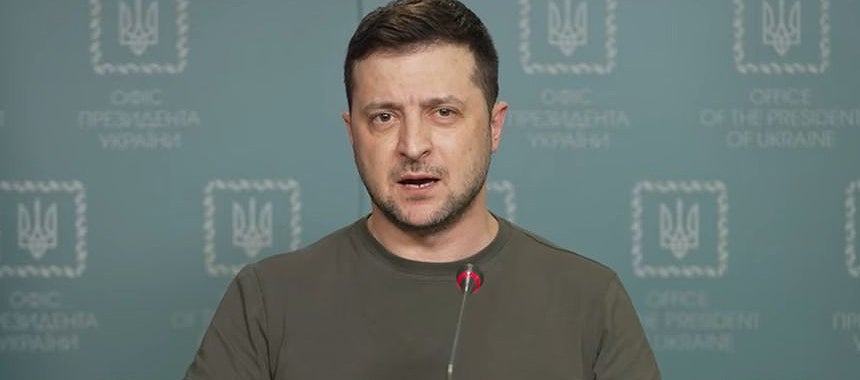Bill Gertz
20 Aug 2020
Archive [July 1999]

This intrepid Washington Times reporter’s new book, Betrayal: How the Clinton Administration Undermined American Security (Regnery) is a must-read.
Rush: I’m really glad to speak to you, Bill, because I want to do as much as I can to get your book into as many people’s hands as possible. Now, when Betrayal first came out, there was a report that the Justice Department was considering prosecuting you for the “harm” you had done to national security — by publishing all these secrets. Have they made a move on you?
Gertz: Not that I know of. And they’re unlikely to, although I’m flattered. As I’ve said, if they want to help me sell a lot of books they can put me in jail. But as I got all of this material — and it did include sensitive documents, including an Executive Order signed by the President — I took the trouble to present the list that we planned to publish to the CIA.
We have almost unlimited freedom as reporters, but I think it comes with a certain responsibility — so I gave them a chance to weigh in. They obviously weren’t too happy about this, but they only objected to about six pages of material, which the publisher decided to withhold. I didn’t have any objection because the meat of those documents was actually explained in the chapter on Russia selling missile technology to Iran.
Rush: So readers really don’t miss anything?
Gertz: No, other than seeing a Top Secret NSA intercept.
Rush: Are you aware of any effort made on the part of the government to try to find out who your sources are and lean on them?
Gertz: I can tell you that in the past, and I’ll speak generically, there have been efforts to go after sources — specifically people who are believed to be my sources. In fact, the President himself a number of years ago sent a secret memorandum to all government departments — obviously, it leaked to me — that called on agency and department heads to go after, take administrative action, or even prosecute people who were leaking classified information.
I called up Mike McCurry, the White House spokesman, and asked, “What’s this all about?” He said, “It’s based on some pretty amazing reporting from one Bill Gertz.” I said, “I’m flattered, but do you really think you’re going to get anywhere with this?” He said, “No, we have no illusions. Going after leakers is a fool’s errand.” But they were making an effort to do that.
A similar thing happened at the Pentagon a couple of years ago, when Defense Secretary Bill Perry issued a memorandum about this problem. After Perry left office, I asked him if it made any difference. He said, “No, but we wanted to try.”
Rush: It is clear that you have the ability to get more information out of classified areas than anybody working today. I’m glad you’re on the case. And I am curious to know whether any intimidation might actually be effective.
Gertz: These witch hunts go on periodically, where they try to find sources. As one of my editors here once said when the FBI was investigating a leak, “We wish the FBI well in whatever endeavor it chooses.”
Rush: Do you think if your work were published in, say, The Washington Post or New York Times that you and your informant would be reacted to and treated differently?
Gertz: It’s a little bit frustrating sometimes to see major stories ignored because they come from The Washington Times, but on more than a few occasions we have triggered major news stories that have forced the other papers and news organizations to follow us. It’s obvious to me they don’t like to do that, but when the story is too big to ignore, they will do it. There does seem to be a tendency to downplay or ignore a lot of our exclusives, although we do get quite a few wire pickups and follow-ups from other media. But I attribute that in part to the Administration’s incredible capability of manipulating the press. They have ways, subtle and not-so-subtle, of intimidating reporters and news organizations into not pursuing stories they don’t like. I’ve seen it happen on a number of occasions.
Rush: Can you give us an illustration?
Gertz: Sure. Last year we reported that 13 of China’s 18 long-range missiles are targeted at U.S. cities. This was contained in the CIA’s premier intelligence publication called the National Intelligence Daily. This is one of those big stories for us, because we’ve been following President Clinton saying over 100 times: “There are no missiles pointed at the children of America.” Here you have a clear case where his intelligence community has concluded in its most important document that there are in fact Chinese missiles pointed at U.S. cities.
When that story broke — and I heard this both from officials and from other reporters — the Administration tried to put out the word that, well, the warheads on those missiles aren’t really mounted on those Chinese boosters. I checked with my sources and they said that’s not true. They have no way of knowing whether the warheads are mounted or not. Besides, that’s not where the targeting is done. The targeting mechanism is separate from the warheads. So this is one example of how they try to spin the news they don’t want. That allowed them to say, “Don’t follow this Gertz story because here’s our take on it.”
Rush: It’s safe to say that if you were working for, say, The Post or The New York Times or The Boston Globe or The L.A. Times, much of your current stuff would have been spiked anyway.
Gertz: That’s right. I probably wouldn’t have lasted very long working there. They’re so extremely politically correct these days. One thing about The Washington Times is that we pride ourselves on being politically incorrect.
Rush: And you are. You open Betrayal with four chapters on Russian espionage, terrorism, and the danger that the former Soviet Union’s military represents for America. But America thinks that’s over with, that the Russians are our buddies, that we’ve neutralized their threat. Would you say the Russian threat as comprised today is more dire than that of China?
Gertz: Yes, just in terms of sheer TNT power or megatonnage. The Russian nuclear arsenal represents the real strategic threat to the United States, although I wouldn’t minimize the Chinese threat in any way. I highlight this in the chapter on nuclear nightmare, which goes into the crumbling control over the Russian nuclear arsenal.
This is a real untold story under the Clinton Administration. I first learned about it years ago from a senior official in the Energy Department, who explained that politically motivated officials basically killed off his entire program — an intelligence program that focused completely on how the Russians were not controlling their nuclear arsenal. This was definitely bad news for people like Strobe Talbot and others who wanted to adopt a conciliatory approach to Moscow and to Boris Yeltsin. So they immediately disbanded this entire program, and put in officials who were more pliable and would go along with the political leanings of their intelligence assessment.
I was fortunate enough to get a number of classified CIA reports which revealed how dangerous the situation is. Even those reports appeared to me and to other outside observers to play down the danger of an unauthorized Russian nuclear missile launch. They kept saying that even though there are problems, the prospect of an unsanctioned use is low.
Well, as they say, one nuclear missile can ruin your whole day. Even if there’s a remote possibility that some rogue general could get hold of a nuclear command post and press the button, it’s truly alarming. But the Administration publicly adopted the exact opposite approach. They had almost a mantra: “There’s no problem with the Russian nuclear control over its missiles. Everything’s fine. So don’t worry about it.”
Rush: Would that primarily be Strobe Talbot? He’s got some, to me, inexplicable love affair with Russia and has since his youth.
Gertz: Yes, he is clearly a liberal arms control proponent. Did nothing but criticize the Reagan Administration, did nothing but criticize the Strategic Defense Initiative.
Certainly missile defense is probably the most important issue right now in terms of national security. Yet his perspective, and that of Clinton and his other advisors, is that arms control is the most important element of the U.S. relationship with Russia. They want to send diplomats to Geneva to sit down over long documents and argue whether they should use the word “shall” or “may” — and try to conclude agreements that in the end the U.S. will adhere to and the Russians will probably not adhere to.
They’ve made arms control the centerpiece. I remember a briefing at the Pentagon three or four years ago, a snowy day here in Washington, a Friday, when there’s a low news-cycle turnout. No one was there. The Secretary of Defense got up and said: “Our first line of defense against missiles is arms control; then it’s deterrence; and last would be actually building missile defense.”
Strobe Talbot has been the driving force on Russia policy; Al Gore as well. He’s had this bi-national commission with the Russians — which is done entirely in secret. It has seemed to be a mutual admiration society with whatever prime minister was in there, first Chernomyrdin, then Primakov, now they’ve got a new guy, Stepashin.
Rush: Has Gore got egg on his face, given the Russian move in Kosovo? He was highlighted by Clinton as the guy who’s making sure the Russians are kept happy. Now the Russians moved in and we’re all surprised and stunned.
Gertz: This is a debacle. They’re doing major spin control — you need a Dramamine patch just to make it through the doorway over there. Gore said he had “personal assurances” from the foreign minister. He said explicitly the Russians promised that they wouldn’t go in. Look what happened. They went in ahead of NATO. They’ve created a huge problem — not just militarily but strategically. Imagine this scenario. Suppose the Serbs suddenly decided, now that the Russians are inside Kosovo, that they didn’t want to pull out their forces. Would that mean the United States wouldn’t bomb those forces because of the Russians? You have the prospect that they’re operating outside of NATO’s chain of command. There have already been a couple of run-ins around the Pristina airport. This is a major problem that is not getting the attention it should.
Rush: What’s in store for us, in light of what you said about the rogue interests in Russia and the nukes, now that they’ve moved into Kosovo? How do you read that? What are the Russians trying to do?
Gertz: You have to put this is context. I’ve been writing about this for the paper over the last couple of weeks. Beginning with the NATO bombing of Yugoslavia, the Russians immediately pulled back from any contacts with the West. There was a report out of Moscow by the defense attaché. Brigadier General Keith Dayton — this was a private back-channel cable that went to the Pentagon — who said that the Russians are cutting off all contacts with Western military attachés in Moscow. Dayton described it as “a return to the Cold War.” This is very serious. The Russians also pulled out their officer, whom we had invited to come into NATO headquarters as part of the operation in Bosnia.
Right away you had questions about what the Russians were doing in Bosnia. They had a battalion of troops in Bosnia as part of the peacekeeping operation there. But now they’ve clearly taken anti-NATO steps. Another sign was the fact that they sent two intelligence-gathering ships to spy on the NATO operation in the Balkans. Were they just collecting intelligence for themselves, or were they supplying it to the Serbs? I know from other intelligence reports that I’ve reported on that they have been spying on behalf of the Serbs and using international organizations in the Balkans as cover.
They have a cultural affinity with the Serbs. They’re both Slavs, and they’ve basically aligned themselves with the Serbs. This creates huge problems for peacekeeping if they’re going to have to settle the differences between the Kosovar Albanians and the Serbs. Clearly it’s going to be very difficult to get the Albanians back into Kosovo if the Russians have a strong say. They want their own sector to do peacekeeping in, and they want to be outside the NATO command. Those are two demands that NATO is not going to give up.
Rush: I’ll bet they do. I’ll bet they do, while spinning that they haven’t. The words will be different from the reality. But why the airport? With the airport, you control who gets in — and who gets out. It’s the “who gets out” that’s interesting to me. If you control the airport, maybe you can see to it that some indicted war criminals find their way out of the country.
Gertz: Sure. Pristina is the regional capital, and the airport was where Lieutenant General Michael Jackson, the British commander in the whole region, was going to have his headquarters. Now the Russians have moved in and won’t get out. After this broke and the Administration was sitting there with egg on its face, we got yet another lie from the Russian foreign minister who said, “Oh, it’s a mistake. They’re going to be pulled out.” Then we find out, “Oh, actually Boris Yeltsin approved this deployment.”
It raises serious questions about whether the Russians have control over their military — and I don’t think they do. This goes right to the heart of strategic nuclear command and control. One thing could escalate to another and then the so-called “de-targeting agreement” that Clinton made with Yeltsin a number of years back could go right out the window.
Rush: By the way, where is the China story now?
Gertz: It seems to have gone off the radar screen.
Rush: It really does, except for you. Do you have a theory as to why?
Gertz: I don’t know the reason. The Republicans have been taking steps in Congress, they passed some legislation to try to tighten up security. But this is a story that the Administration doesn’t want out — and as a result, most of the major media have been ignoring it.
Rush: Rep. Curt Weldon said that while the Administration was ostensibly “reviewing” the Cox Report to determine what would be declassified, they were actually preparing their spin operation. So the question arises, is this Administration at all concerned with the national security implications of this story? Or, are they just concerned about their own political standing at the end of the day?
Gertz: Yes, I think that’s it.
Rush: Really? They are not concerned with national security?
Gertz: I think they have made national security take a back seat to doing business with China at all costs. And that’s had devastating consequences. Their response was to blame the Republicans. But it was not the Republicans who stole these nuclear secrets or acquired the technology; it was the Chinese. Yet there was not a single word of criticism about the Chinese. Not one.
If you search all the statements by Administration officials, we heard, “Well, everybody spies,” and, “Hey, this all happened under the Republicans’ watch,” and, “Isn’t it too bad that the Republicans didn’t do anything; we’re doing something about it.” Then Clinton turned around and offered to renew most favored trade status with China.
Rush: Plus, we learned that former Energy Secretary Hazel O’Leary, not wanting to hurt anybody’s feelings, scrapped the practice of requiring color-coded IDs in all the nuclear labs. We didn’t want to discriminate and hurt people’s feelings by having it known that certain people were not allowed access to these very important places. Then we learned that it was O’Leary herself who leaked the design of the W-87 to U.S. News & World Report, which published a diagram of the weapon in the July 31, 1995 issue.
In your book you quote a government official close to the Cox Committee saying that the Administration “circumvented the law and they knew what they were doing.” So was this a systematic dismantling of our security on purpose? Or is this just liberal naivete that does not accept the Chinese as a threat?
Gertz: I think it’s a little of both. In the case of the Energy Department and Hazel O’Leary, she brought in a group of people who could only be described as virulent anti-nuclear activists, and they took a slash-and-burn approach to security.
They knew that they only had a short period of time, and they were out to do as much damage to the Energy Department’s role in U.S. nuclear weapons as they could. They did this under the guise of declassification. Instead of protecting secrets, their main concern was: How much can we declassify? In a number of cases we reported that they started declassifying en masse, and before anyone knew it information about nuclear weapons was leaking out.
They had to scrap the whole program. Just recently Congress passed a law that said, “No more bulk declassification of nuclear material.” It has to be reviewed carefully so we don’t give terrorists or other rogue states the ability to develop nuclear weapons.
They adopted this naive approach to world affairs, that there are no more threats in the world, that the only real threat is the United States. As Jeane Kirkpatrick said, it’s the blame-America-first crowd. These are people who believe fundamentally, philosophically, that the major cause of the problems in the world is not Russia or China but it’s the United States, and the more that can be done to limit the assertiveness and strength of the United States in the world the better off the world will be.
Rush: I’ve been quoting Madeleine Albright who said in April 1998: “We very much don’t want to be out there by ourselves as the organizer and the only superpower. People don’t believe that. They think we just want to be king of the hill, but we do not.” These people have always felt that the focus of evil in the world is the U.S. military. You’re saying what I’ve often said myself, but to hear you say it, as close as you are to all this, is chilling. They actually believe the world will be safer if they can balance the nuclear threat by giving a whole bunch of nations access to it.
Gertz: Right. I heard a speech recently by Frank Wisner, the U.S. ambassador to India. He was a senior Pentagon official when they denied armor to the commanders in Somalia, which led to the big disaster there. Wisner showed the Indians how we knew about their nuclear tests so the Indians could hide it from us when they finally did one. In his recent speech I remember him saying, “Oh, the balance of power is a very complex thing.” I thought, “What is he talking about? There is no ‘balance of power’ in the world today. We are the sole superpower.” But they think in terms of power balancing, and for them that means taking power from the United States and giving it to countries like Russia and China.
Rush: They actually think the world is being made safer by doing this.
Gertz: Yes, they think that’s fundamental.
Rush: There’s no moral difference between a Communist government in China and the democratic United States of America in their minds.
Gertz: Right. Yes. Have you ever once heard any Clinton Administration official even say that the Chinese government is a Communist government?
Rush: No. They never have.
Gertz: That says it all right there. They are working very hard to pretend there are no foreign threats. An intelligence official once told me: “For the Clinton Administration there are no foreign threats, only foreign capabilities.” He was expressing his frustration at how politicized the intelligence community had become, that they were not allowed to use terms that highlight the dangers in the world, which they’ve been doing for decades.
Rush: I read an interview with you on WorldNetDaily.com by Jon E. Dougherty. You’re quoted as having told him: “The Chinese are engaged in a pretty serious strategic and conventional military buildup. The alarming part of that is that it doesn’t appear as though they’re building up forces just for a regional conflict. It appears as though they’re developing forces [strictly] to oppose the United States.” What specifically do you mean?
Gertz: They’re not building three types of strategic nuclear missiles in order to confront the Philippines. They’re doing it to confront the United States. Their goal is to push the United States out of Asia, and they’re doing everything they can to achieve that goal. And these are people who follow Sun Tzu and his Art of War, who said: “The acme of skill is defeating your enemy without firing a shot.”
They know they can’t match the United States missile for missile, warhead for warhead, ship for ship. So they’re engaged in what they call “asymmetrical warfare.” They’ve picked a few areas where they want to challenge the United States’ technological superiority, and that includes mobile ICBMs. We don’t have any. These are missiles you can’t find, as demonstrated in the Persian Gulf War. We had a terrible time trying to locate Iraqi SCUD missiles — and those were just short-range missiles. The Chinese want to put these missiles in their country and be able to threaten the United States, so that if there is a confrontation over Taiwan — and that’s really the hotspot — they’ll be able to have these missiles.
They’re also developing some more exotic weapons. They’re doing information warfare. This is among the most closely guarded secrets, but they’re actually looking at ways they can take down an entire country through computers. The joint staff, the military, did an exercise last year. It was called “Eligible Receiver,” and just using tools from the internet, just software and things, this group of NSA specialists literally could have turned the lights out in large portions of the United States. They could have. They got into the power grid and could have shut down our power.
This is one area where the Chinese are working. Another is anti-satellite weapons. Huge amounts of data, whether it’s military or commercial information, travels by satellite, and those satellites are extremely vulnerable. The Chinese have tested anti-satellite weapons. The military did a test last year, where they fired a low-powered laser at a satellite and caused damage to the sensors. This means they could basically shut down our communications and satellite information networks with laser satellite weapons, which they’re working on.
Rush: Speaking of satellites, given the fact that they’ve tested the W-88, our most advanced warhead, is there any chance for the Strategic Defense Initiative, SDI?

Gertz: This is, as I mentioned, the most serious national security issue facing the country. Clinton has made it clear he’s been flexible on almost every issue except missile defense; he’s committed to having none on his watch. Again this goes back to the arms control relationship with Russia. They believe that having these negotiations is more important.
The Rumsfeld Commission which Congress organized last year burst the balloon on the Administration’s idea that there were no missiles pointed at the children of America. They highlighted the emerging threat of long-range missiles. Their bottom-line conclusion was that a long-range missile threat to the United Stales could emerge with little or no warning.
This means that whoever we have an arms control agreement with regarding missile defenses is going to be meaningless if the Chinese aren’t part of it, if the North Koreans aren’t part of it, if the Iranians aren’t part of it and other states that wish us ill. If you don’t defend the country against the greatest strategic threat, then it makes it very, very difficult for the defense leaders to argue defending it against the lesser threats, whether that’s terrorism or regional conflicts. And that’s precisely what the administration has done. They’ve wished away the long-range missile threat and just focused on these lesser threats, which are much more difficult to counter.
Rush: You’ve said that China is playing the Russia card. What do you mean?
Gertz: During the Cold War, we made a quasi-alliance with the Chinese against the Soviet Union, which was an expansionist, Communist power. We even had electronic eavesdropping posts in China that were spying on the Soviet Union. With the end of the Cold War, however, all that changed.
Now China is emerging as the new regional and potentially global superpower, and they recognize that in order for them to gain position over us they’re going to have to weaken us. So they’ve launched an anti-hegemonism campaign. They’re blaming us as the great hegemonic power in the world. In order to balance power, they’ve made common cause with Russia. They have a semi-alliance. They recently concluded a border agreement which allowed China to pull thousands of troops and tanks off its border with Russia and those troops are now being used for repression in Xian-Xiong, where you have Muslim separatists and also in Tibet, where the Buddhists are seeking independence. And they’ve also begun purchasing large amounts of high-technology weaponry, including ships with SSN22 Sunburn missiles.
Rush: From whom?
Gertz: From Russia. The Chinese are buying these ships. Now, these Sunburn missiles were designed specifically to kill U.S. ships. The Russians built them for one purpose and that is to sink our aircraft carriers and our destroyers and cruisers. So, clearly this is another indication that they’re preparing forces not to fight regional conflicts but to confront the United States.
Rush: Bill Richardson says that the lab security problems have all been remedied. They’ve been solved. Is that true?
Gertz: False, totally false. This is another case where the Administration has been saying loudly and repeatedly that they’ve made vast improvements in laboratory security. How? First, they signed a Presidential Directive, I think it was PDD61. The most notable feature of this directive is that it’s currently secret. I went to the White House and I said: “If you want to make your case that you’ve improved security, why not release this directive?”
“Oh, no, we can’t do that,” they said. I talked to people who have seen the directive, and they said that it doesn’t do anything to improve security. Basically it brings in FBI people to fire the Energy Department security and intelligence officials; second, it institutes a system of polygraphs or lie detector tests — which have been shown, especially by the Chinese, to be very easily defeatable. There is the case of Larry Wu Tai Chin, a spy in the ‘80s, who worked for the CIA as a mole for China for decades and underwent a number of polygraph tests that he obviously passed without any problem. They haven’t really improved security. Also, according to the Cox Report, it’s almost certain that Chinese espionage is continuing today. I interviewed the head of Los Alamos National Laboratory, John Brown, and the question I put to him was: “How many Chinese nationals currently are working at Los Alamos?” He said about 100. These aren’t Chinese Americans. These are people who hold People’s Republic of China passports. They don’t have access to secrets, but they have access to the people who have secrets. I thought: “If you have a Chinese espionage problem, it seems to me that the first thing you would do would be to try to limit the access of people from the PUC who might be involved in that espionage.” The Administration has said they have no plans to change that policy.
Rush: The more the American people are not paying attention to this, the more the Administration thinks they can be lax with this so-called strategic partnership and ruffle as few feathers in China as possible.
Gertz: But it doesn’t look like there’s going to be a strategic partnership with China. Even those in the Pentagon who are in charge of trying to build that relationship are starting to recognize it. A big monkey wrench was the errant bombing of the Chinese Embassy in Yugoslavia. As I reported in the paper, the Chinese are convinced that that bombing was deliberate and intentional.
Rush: They really believe that?
Gertz: Yes. And that it was part of conspiracy to try to drag China into the Balkans conflict. The reason they believe this — and this is based on intelligence reports — is that when the bombs struck that embassy building, the JDAM missiles, as they’re called, homed in on the defense attache’s office and a secure communications room. So that convinced the Chinese this wasn’t accidental. We’re sending an envoy to China this week to again apologize for it.
Rush: Pickering. What do you think?
Gertz: I’ve looked into this. I went to the CIA and asked my friends there. I said, Look, if you had a mole in the CIA who wanted to screw up U.S. relations with China or any other country, is it possible you could feed in the false coordinates for the Chinese embassy in Belgrade? The answer I got — and I tend to believe it — is that you couldn’t orchestrate the number of screwups that took place in order for that errant bombing to take place. Obviously it was based, first of all, on a wrong map. But then there were at least five different places along the way by five different agencies, including the CIA, that were supposed to validate that the target they were aiming at was actually a Serbian military supply depot. And it wasn’t.
We haven’t had all the answers on it, but I tend to believe that it was a mistake. I can’t see any benefit for the Administration to try and provoke the Chinese. Right now you’ve got a billion and a half people angry at you. It’s not a good situation.
Rush: One final question, in light of these recent developments coupled with this Administration’s approach to matters military vis à vis China. What would happen if China invaded Taiwan while Bill Clinton is President?
Gertz: That’s a good question.
Rush: I’m afraid we’d do nothing. I think we’d huff and puff, but I don’t think we could afford to do anything.
Gertz: We do have some indication that they would respond. I think it would be vitally important that we fulfilled the commitment under the Taiwan Relations Act, which states that the U.S. would not allow Taiwan to be overrun militarily. That’s the bottom line. The Administration has tried to obscure that commitment to defend Taiwan by saying that it’s “ambiguous.” But think about the repercussions in Asia, if the United States did not. I can tell you talking to the U.S. Pacific Command that we do have contingency plans for a conflict with China over Taiwan. They do planning for all kinds of things, but there are war plans should the Chinese try to take Taiwan militarily. They have not disavowed the use of force in Taiwan; it’s a flashpoint.
In the book I talk about the case of General Xiong Guangkai, a senior official in the People’s Liberation Army. I’ve met him several times. He speaks English very well, very polished. He had an exchange with a former Pentagon official back in 1995 when the Chinese were conducting war games near Taiwan, with the intent to intimidate the Taiwanese. He explained to this former official, Charles Freeman, that during the Korean War the United States had an overwhelming nuclear advantage over China, but General Xiong said that’s not the case today. China has made strides, and he said the United States would not intervene in a conflict with Taiwan “because it cares more about Los Angeles than Taipei,” the Taiwanese capital.
I talked to Charles Freeman, who felt it was enough of a threat that he notified the White House national security advisor at the time, Anthony Like. Freeman recognized it for a nuclear threat. I talked to General Xiong about this, who would just smile and tell me I was a friend of China.
Rush: Bill, thanks for your time. I really appreciate it. Continued good luck with the book and congratulations on your work.
Gertz: Thanks. Keep up the good work on your end, too.
Rush: I’ll do my best.
Recent Stories

De Blasio Imposes Vaccine Passport Mandate In NYC test
This is an excerpt that Jaime updated. ffffffffffff

Buck Draws Heat For Speaking Truth About Simone Biles
I just wanted to establish what the current president was saying back on ABC News in March to George Stephanopoulos about his feelings on Governor Cuomo.







